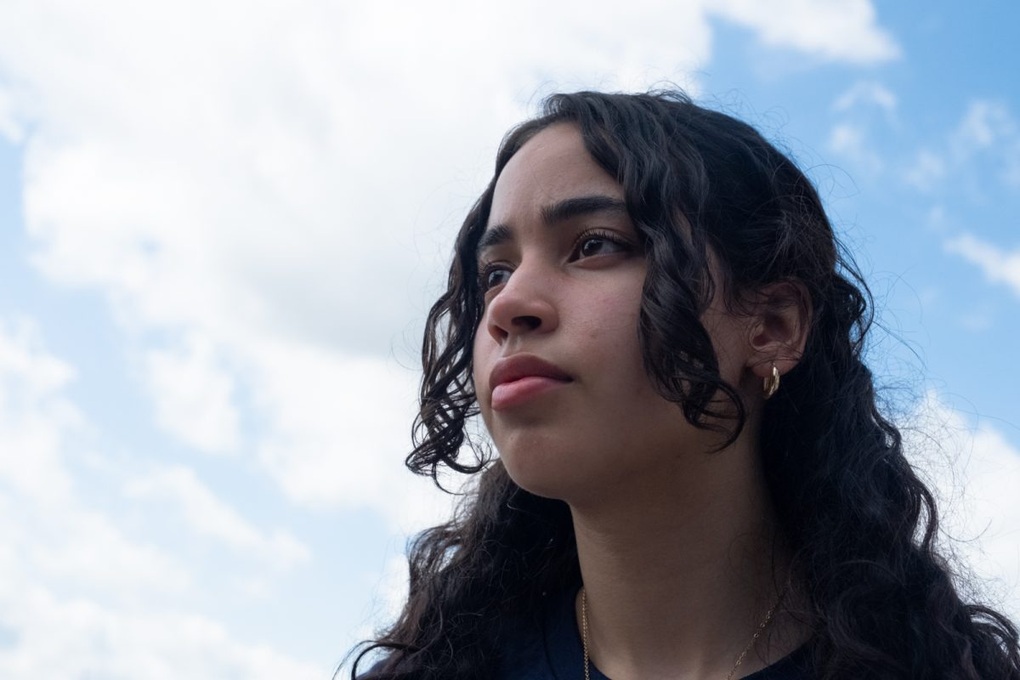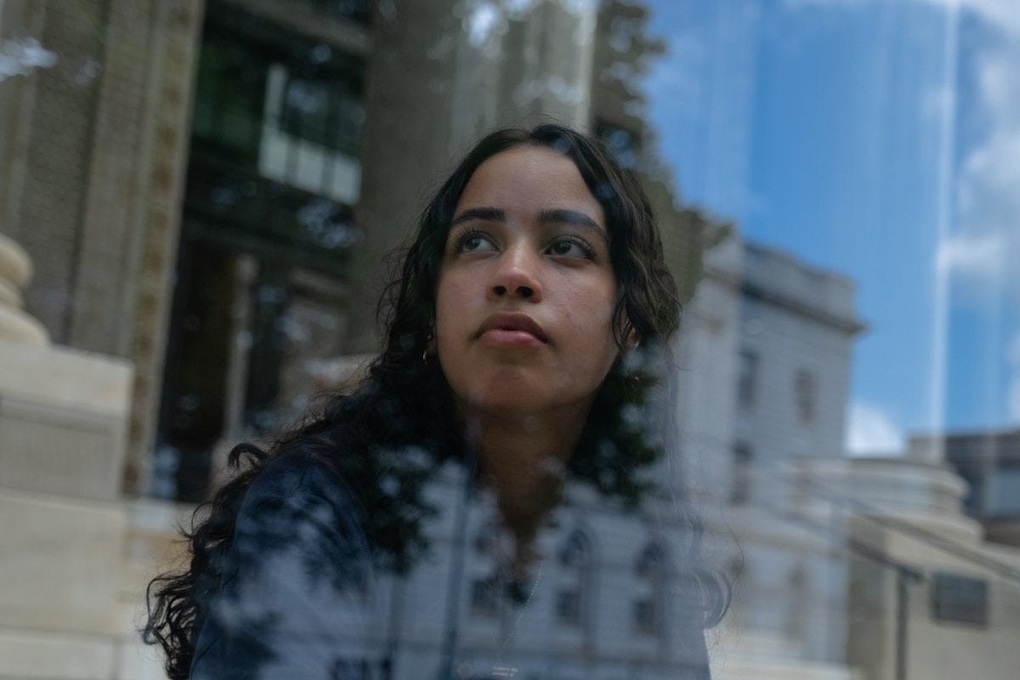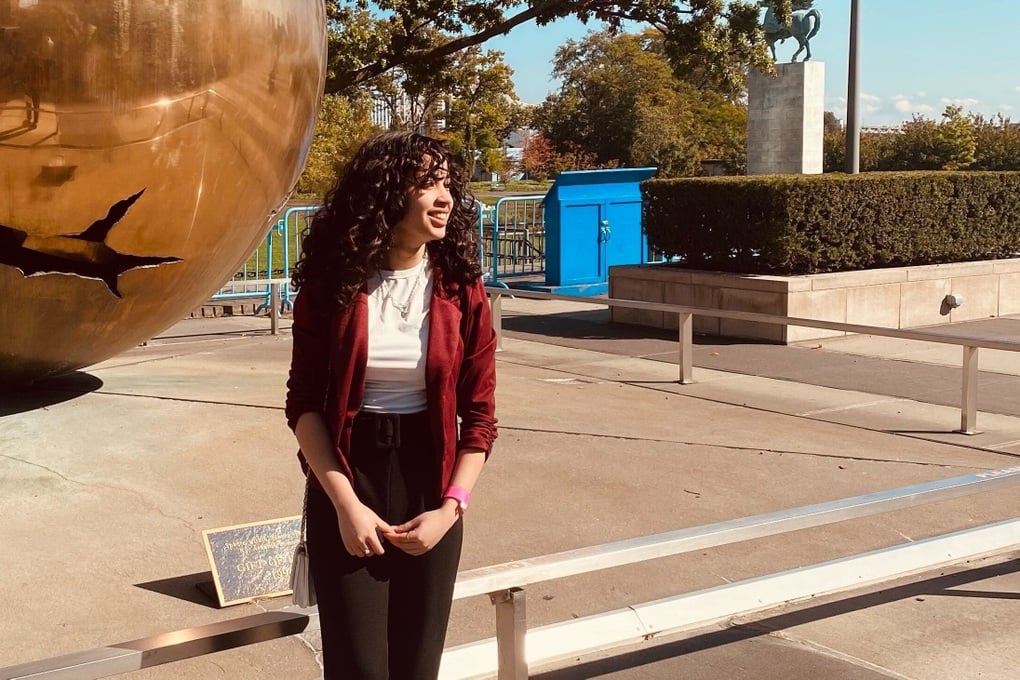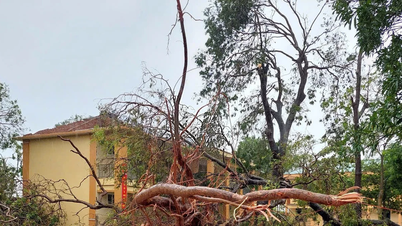(Dan Tri) - Female student Aleysha Ortiz (19 years old) decided to sue the authorities of Hartford city, Connecticut state, USA, for lack of responsibility in local education management.
In June 2024, Aleysha Ortiz graduated from Hartford High School in Hartford, Connecticut, USA. She even received a scholarship to college, but there was one problem with Aleysha: she was almost... illiterate. Aleysha's ability to read and write was very limited.
While other students were excited about graduating from high school, Aleysha was scared. Although she graduated with good academic results, in reality, Aleysha struggled with reading and writing.

Female student Aleysha Ortiz (19 years old) caused shock when she decided to sue Hartford city authorities (Photo: NYP).
In May 2024, she shared her problems in a meeting with the Hartford City Council authorities. Immediately, the Hartford High School Board began to hesitate before deciding to award Aleysha a diploma.
Two days before the graduation ceremony, the authorities advised Aleysha to postpone receiving her diploma. They promised to provide her with special support to help her improve her situation. However, Aleysha did not agree with this solution.
Currently, Aleysha decided to sue the Hartford City Board of Education and the Hartford City Council for lack of responsibility in management and operation of work.
In addition, Aleysha also sued the person directly in charge of her case during her years at Hartford High School, that is the teacher Tilda Santiago. According to Aleysha, teacher Tilda negatively affected her mental health.
While attending Hartford High School, Aleysha was identified as a student with special educational needs. The school assigned teacher Tilda Santiago to Aleysha's case. Ms. Tilda was asked to pay close attention and actively support Aleysha.
However, in her lawsuit, Aleysha said that Tilda was not supportive and often had attitudes, words and actions that made Aleysha feel very negative. For example, Tilda followed Aleysha around the school yard, which she considered as proof to everyone that she had done her assigned tasks.
In her lawsuit, Aleysha said she often felt humiliated in front of other students and teachers because of Ms. Tilda's behavior. Aleysha reported the incident to the school, so Ms. Tilda was removed from her support duties. Currently, the parties sued by Aleysha declined to comment.
Going to class "regularly" but... "illiterate"
Aleysha was born in Puerto Rico and showed signs of learning difficulties from an early age. Her mother, Carmen Cruz, also realized early on that her daughter needed special help.
Aleysha's family moved to Connecticut (USA) when she was 5 years old, believing that from then on Aleysha would receive a good education.

In June 2024, Aleysha Ortiz graduated from Hartford High School (Photo: NYP).
However, Aleysha still had a lot of difficulties learning to read and do math. Her ability to listen and speak English was also very limited. Because she could not keep up with her studies in class, Aleysha gradually became a problem student, often causing problems in class.
In Aleysha’s lawsuit, she said she was given an assessment test in sixth grade that showed she had the reading and writing abilities of a kindergartener or first grader.
During Aleysha’s time in high school, her mother repeatedly asked the school to provide more support for her daughter, as Aleysha had difficulties that hindered her studies. As a mother of four, Carmen Cruz faced many obstacles in raising her children, as she did not speak English, she only spoke Spanish. Previously, Carmen had only finished 8th grade.
Ms. Carmen admitted: "I don't know anything about the school's regulations. The school invited me to meet many times, the teachers explained a lot, but I didn't understand anything."
By the time Aleysha was in 11th grade, she still had trouble holding a pen steady and some teachers suggested she should be tested for dyslexia.
This syndrome causes severe learning difficulties for people with the condition. People with the condition have difficulty mastering reading and writing skills because they cannot recognize sounds and make connections between sounds and letters and vocabulary.
Aleysha was tested just a month before her high school graduation. On her last day of school, she was told she had severe literacy problems. She needed to be retrained in everything from pronunciation to reading comprehension.
Having had ongoing problems in school, Aleysha was diagnosed with ADHD, oppositional defiant disorder, social anxiety disorder, and a language disorder. Finally, on her last day of high school, Aleysha received the results that revealed she also had dyslexia.
Female student "illiterate" but is studying at university
In September 2024, Aleysha enrolled at the University of Connecticut, where she wanted to major in public policy. At this time, everyone who knew Aleysha's story was surprised. How could a student who could not "read or write fluently" become a university student?

Aleysha Ortiz received a scholarship to college, but there was one problem with Aleysha: she was almost... illiterate (Photo: NYP).
Aleysha’s answer was thanks to technology applications. To be able to pass the classes during high school and apply for university, Aleysha always used applications that converted text files or image files into audio files, or converted audio files into text files.
Aleysha used technology apps to fill out forms and write essays. She also received help from others as she navigated the admissions process. Ultimately, Aleysha received scholarships and some financial aid to help her attend college.
Aleysha said that in elementary and middle school, her teachers always let her move up the grade easily. In high school, Aleysha uses technology to complete her assignments.
While her friends have time to play, Aleysha has to spend 4-5 hours a day to complete her homework. Using applications to complete the homework takes a lot of time.
Aleysha usually records all her class lectures on her phone. When she gets home, she plays the recording and uses software on her laptop to convert the teacher's lecture into a text file, then uses the cut and paste tool to complete her assignments.
Sometimes when Aleysha says what she wants to say in her essay, she uses a speech-to-text app to complete her assignments and submit them to her teacher.
Because Aleysha has limited vocabulary and expression, the speech-to-text tool does not always work effectively and accurately. She still makes mistakes in sentences and grammar, but overall, Aleysha's high school grades have improved significantly.
When reporters in the US approached Aleysha, she demonstrated how she used the apps. Aleysha also confirmed to reporters that she could not read even a short page of a book. For her, the words and phrases appeared before her eyes but were meaningless.
Aleysha said university has been challenging for her. The school has provided her with special support, but she has taken a leave of absence since February 1. She wants to have time to get some mental health treatment before returning to her studies.
Source: https://dantri.com.vn/giao-duc/mu-chu-van-do-dai-hoc-nu-sinh-kien-nha-chuc-trach-20250302120542513.htm




![[Photo] General Secretary To Lam chairs the meeting of the Central Steering Committee on preventing and combating corruption, waste and negativity](https://vphoto.vietnam.vn/thumb/1200x675/vietnam/resource/IMAGE/2025/9/29/fb2a8712315d4213a16322588c57b975)
![[Photo] General Secretary To Lam receives Chairman of the State Duma of the Russian Federation Vyacheslav Volodin](https://vphoto.vietnam.vn/thumb/1200x675/vietnam/resource/IMAGE/2025/9/29/3814a68959e848f586178624b6bd66e5)






























































































Comment (0)